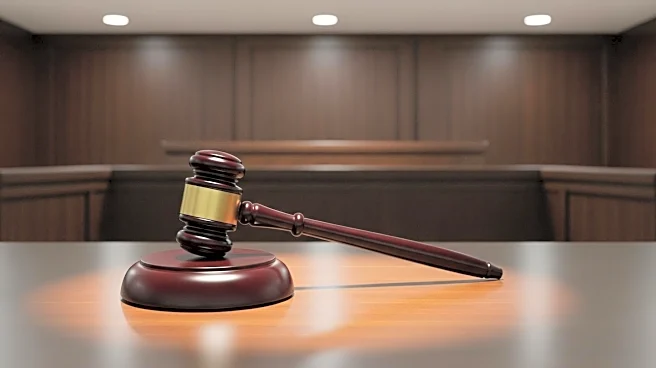What is the story about?
What's Happening?
A judge has ruled that President Trump's deployment of military troops to Los Angeles was illegal, sparking discussions on the legality and implications of such actions. The ruling comes amid concerns about the use of military force in domestic settings and the balance of power between federal and state authorities. The decision highlights ongoing debates about the role of the military in civilian law enforcement and the legal boundaries of presidential authority.
Why It's Important?
The ruling has significant implications for the separation of powers and the use of military force in domestic affairs. It raises questions about the limits of presidential authority and the legal frameworks governing military deployments within the U.S. The decision may influence future policy discussions and legal interpretations regarding the use of military personnel in civilian contexts, impacting public safety and civil liberties.
What's Next?
The ruling may lead to further legal challenges and appeals, as stakeholders, including government officials and civil rights groups, respond to the decision. The outcome could shape future policies on military involvement in domestic law enforcement and influence legislative efforts to clarify the legal boundaries of such actions. Public discourse and advocacy may play a role in shaping the narrative and policy responses to the ruling.
Beyond the Headlines
The decision reflects broader themes of governance, accountability, and the rule of law. It highlights the importance of judicial oversight in maintaining checks and balances within the government. The ruling may prompt discussions on the ethical and legal dimensions of using military force in civilian settings, influencing long-term policy shifts and societal attitudes toward government authority.















